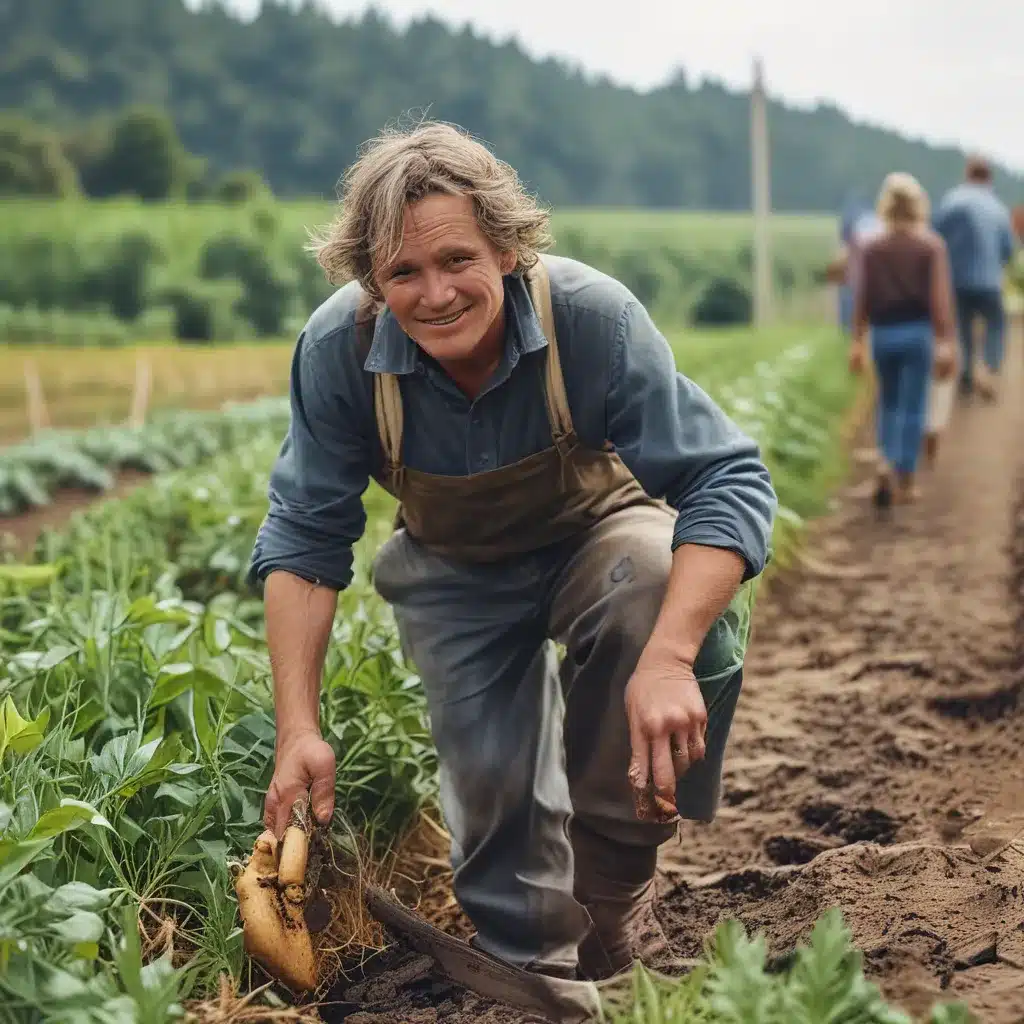
As an avid home gardener, I’ve always been fascinated by the resilience of organic farmers. While I may struggle to keep my tomato plants alive during a heatwave, these hardworking individuals seem to weather any storm – both literal and figurative – that comes their way. Their ability to adapt and thrive in the face of uncertainty has long been a source of inspiration for me.
Adapting to a Changing Climate
One of the most pressing challenges facing organic farmers today is the impact of climate change. According to the USDA Climate Hubs, farmers must contend with a range of climate-related issues, from intensifying droughts and floods to the spread of new pests and diseases. And yet, time and time again, I’ve witnessed these individuals devise innovative strategies to overcome these obstacles.
Take, for example, the case of Sarah, a vegetable farmer in the Midwest. A few years back, her region experienced an unprecedented drought that decimated her crops. Rather than throwing in the towel, Sarah decided to invest in a high-efficiency irrigation system, drawing water from a nearby stream. By optimizing her water usage, she was able to not only salvage her existing crops but also expand her growing area, diversifying her product offerings.
“It was a costly investment upfront,” Sarah told me, “but in the long run, it’s paid off tenfold. I’m now able to grow a wider variety of crops, and I’m less vulnerable to the whims of Mother Nature.”
Building a Resilient Supply Chain
Of course, climate change is just one of the many uncertainties that organic farmers must grapple with. As the McKinsey report on business resilience points out, disruptions to global supply chains have become increasingly common in recent years, posing a significant threat to the livelihoods of small-scale producers.
But once again, the organic farming community has proven its mettle. Many growers have turned to circular business models, reclaiming their own products for raw materials and reducing their reliance on overseas suppliers. One standout example is EMMA Safety Footwear, which has created the first fully circular safety shoe.
For organic farmers, this approach has manifested in innovative ways. I recently visited a community-supported agriculture (CSA) service, Thornnapple CSA, where the growers have collaborated to establish their own composting and seed-saving initiatives. By closing the loop on their production cycle, they’ve minimized their exposure to supply chain disruptions and rising input costs.
“It’s all about building resilience,” explained one of the farmers, Mary. “We can’t always control what happens out there, but we can control how we respond to it. By taking ownership of our supply chain, we’re ensuring our long-term sustainability.”
Diversifying for Stability
Of course, resilience isn’t just about weathering the storms – it’s also about thriving in the face of adversity. And that’s where the organic farming community’s penchant for diversification comes into play.
As the UNESCO report on sustainable agriculture highlights, diversified farming systems not only improve soil health and ecosystem services but also provide a critical buffer against economic shocks. By growing a wide array of crops and livestock, organic farmers can spread their risk and ensure a steady stream of income, even when one aspect of their operation is struggling.
I’ve witnessed this firsthand at the Thornnapple CSA. In addition to their vegetable and fruit crops, the farmers also raise chickens, goats, and honeybees, providing a diverse array of products for their members. And when the pandemic hit and demand for certain items waned, they were able to quickly pivot, redirecting their efforts to meet the newfound need for home-canned goods and farmstead cheeses.
“Diversification is key,” says Mary. “It’s not just about growing a variety of crops – it’s about building a multifaceted business that can withstand whatever the world throws at us. That’s the secret to our success.”
Cultivating Community Connections
But the organic farming community’s resilience extends beyond just their business practices. It’s also deeply rooted in their relationships with the broader community.
As the McKinsey report notes, one of the keys to building a resilient organization is fostering new customer relationships and diversifying your revenue streams. And that’s precisely what organic farmers have been doing through their engagement with community-supported agriculture (CSA) programs.
By forging direct connections with their customers, these farmers have not only secured a reliable source of income but also cultivated a deep sense of loyalty and trust. When the pandemic forced many grocery stores to limit their hours or shutter altogether, CSA members rallied to support their local growers, ensuring that fresh, nutrient-dense produce continued to flow into their communities.
“It’s not just about the food,” explains Mary. “It’s about the relationships we’ve built, the shared values we’ve cultivated. Our CSA members aren’t just customers – they’re partners in our mission to build a more sustainable food system.”
Embracing Uncertainty with Optimism
As I reflect on my conversations with these remarkable organic farmers, I’m struck by their unwavering optimism in the face of uncertainty. Rather than being cowed by the challenges before them, they seem to embrace them as opportunities for growth and innovation.
“Sure, it’s not easy,” says Sarah. “There are always new hurdles to overcome, new curveballs to navigate. But that’s what makes this work so rewarding. Every day, we get to put our creativity and resilience to the test, and every day, we come out stronger for it.”
And that, I believe, is the true secret to the organic farming community’s success. By cultivating a mindset of adaptability and innovation, they’ve not only weathered the storms of the past but positioned themselves for a future that, while uncertain, is ripe with possibility.
As I head back home, my own home garden in tow, I can’t help but feel inspired. If these hardworking individuals can thrive in the face of such daunting odds, perhaps there’s hope for us all. After all, as the saying goes, “When the going gets tough, the tough get growing.”



